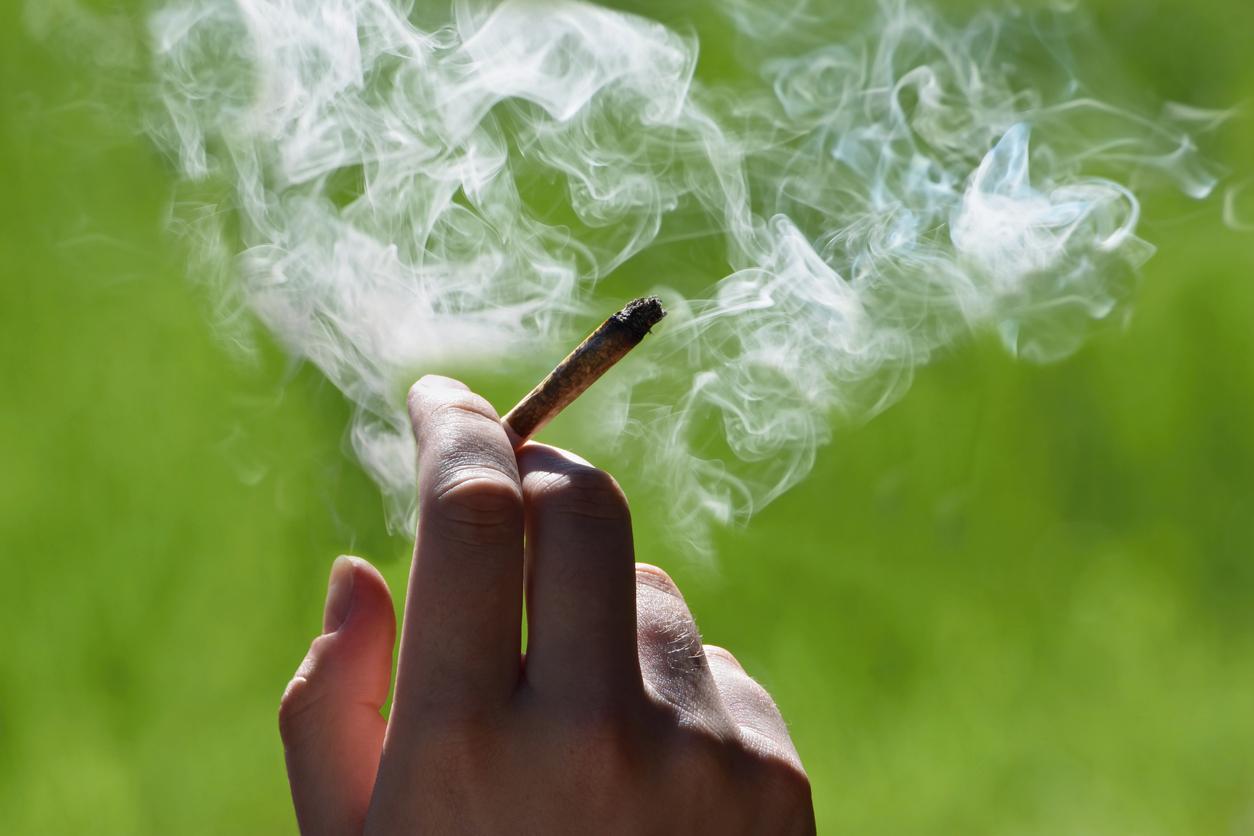Smoking cannabis early and on a regular basis is associated with impaired brain circuitry that promotes cognitive control.

Regularly smoking cannabis when you are a teenager and prolonging its consumption over several years can permanently alter brain circuits and promote cognitive decline. This is highlighted by a new study conducted by American researchers and published in the Journal of the American Academy of Child and Adolescent Psychiatry (JAACAP).
developing brain
According to its authors, smoking joints when you are still an adolescent can permanently affect cognitive control, that is to say the set of processes by which the mind governs, regulates and guides behaviors, impulses and goal-based decision making. They also found that these alterations are all the more important and persistent in people who started using cannabis early, while their brains were still developing.
“Most adults with substance use problems most likely had substance abuse and alcohol problems during adolescence, a developmental period when the neural circuits that underlie cognitive control processes continue to mature,” says Dr. Marilyn Cyr, lead author and postdoctoral fellow in the Division of Child and Adolescent Psychiatry at the New York State Psychiatric Institute. “As such, the adolescent brain may be particularly vulnerable to the effects of substance use, particularly cannabis, the most commonly used recreational drug by adolescents worldwide,” she adds.
Difficulties in resolving conflicts
To achieve this result, the researchers analyzed functional magnetic resonance imaging (fMRI) data obtained from 28 adolescents and young adults aged 14 to 23 with heavy cannabis use and 32 healthy non-use controls. . Participants were analyzed while performing a spatial incompatibility task called the Simon task. It is an exercise in cognitive control that requires the resolution of a cognitive conflict in order to react with precision.
The researchers then noticed that compared with those who did not smoke cannabis, adolescents and young adult users showed reduced activation in the fronto-striatal circuits, which promote cognitive control and conflict resolution. They also found that early chronic consumption may have a greater impact on the development of these brain circuits than late consumption.
Identification of brain targets
“These findings are a first step toward identifying brain targets for early interventions that reduce addictive behaviors by improving self-regulatory capacity,” says Dr. Cyr.
According to her, since “alcohol and other drug use and relapse rates are associated with control processes”, therapeutic strategies “such as cognitive training, which specifically target brain circuits at the base of these control processes can be useful” in addition to the care programs already in place for cannabis use disorders.

.

















